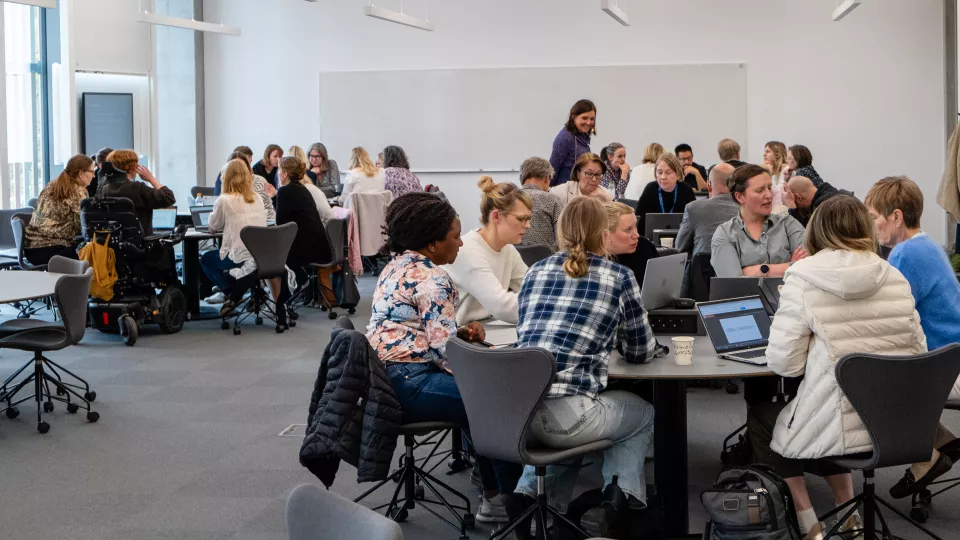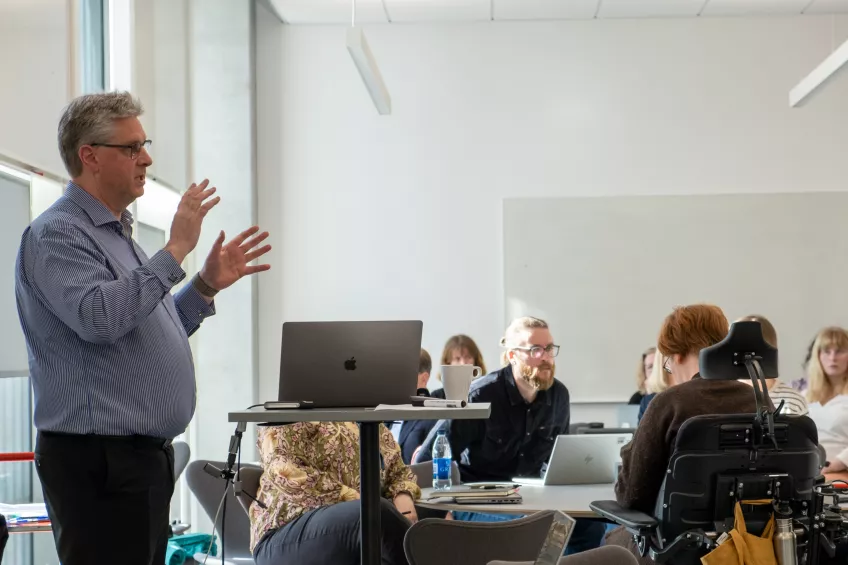One morning in April, about thirty people who teach at the faculty gathered to discuss how feedback to students using forms during clinical training can be made meaningful and useful. As an introduction, Professor Luke Dawson from the School of Dentistry in Liverpool spoke about how assessment affects learning: how we assess students drives their behavior, and the choices we make regarding assessment therefore need to be well thought out and well motivated. Luke shared his many years of experience in developing and using a system similar to QPS for feedback, and pointed out advantages and common pitfalls.
To see how the feedback tool affects the feedback, the participants were asked to observe a student on film and provide feedback using different forms. Despite all having seen the same film, there were clear differences in the feedback given. Sara Wiberg, program director of the speech and language pathology programme, commented:
– All assessment forms have strengths and weaknesses, and it is useful to compare them. Previously, we have seen the shortcomings of our own forms but when we compare them, we also see the advantages they have relative to others.
The aim of the feedback is to support the students' learning. Maja Weimarsson, a term 10 medical student and today a moderator in one of the discussion groups, was asked what she wants to tell the other students in her programme after the day.
– There is a lot of frustration among the students as the feedback in the forms is often not meaningful or useful. At the same time, the useful feedback one receives is so very important! It is comforting to hear that there is so much work being done to improve the feedback.



